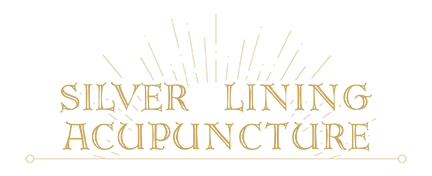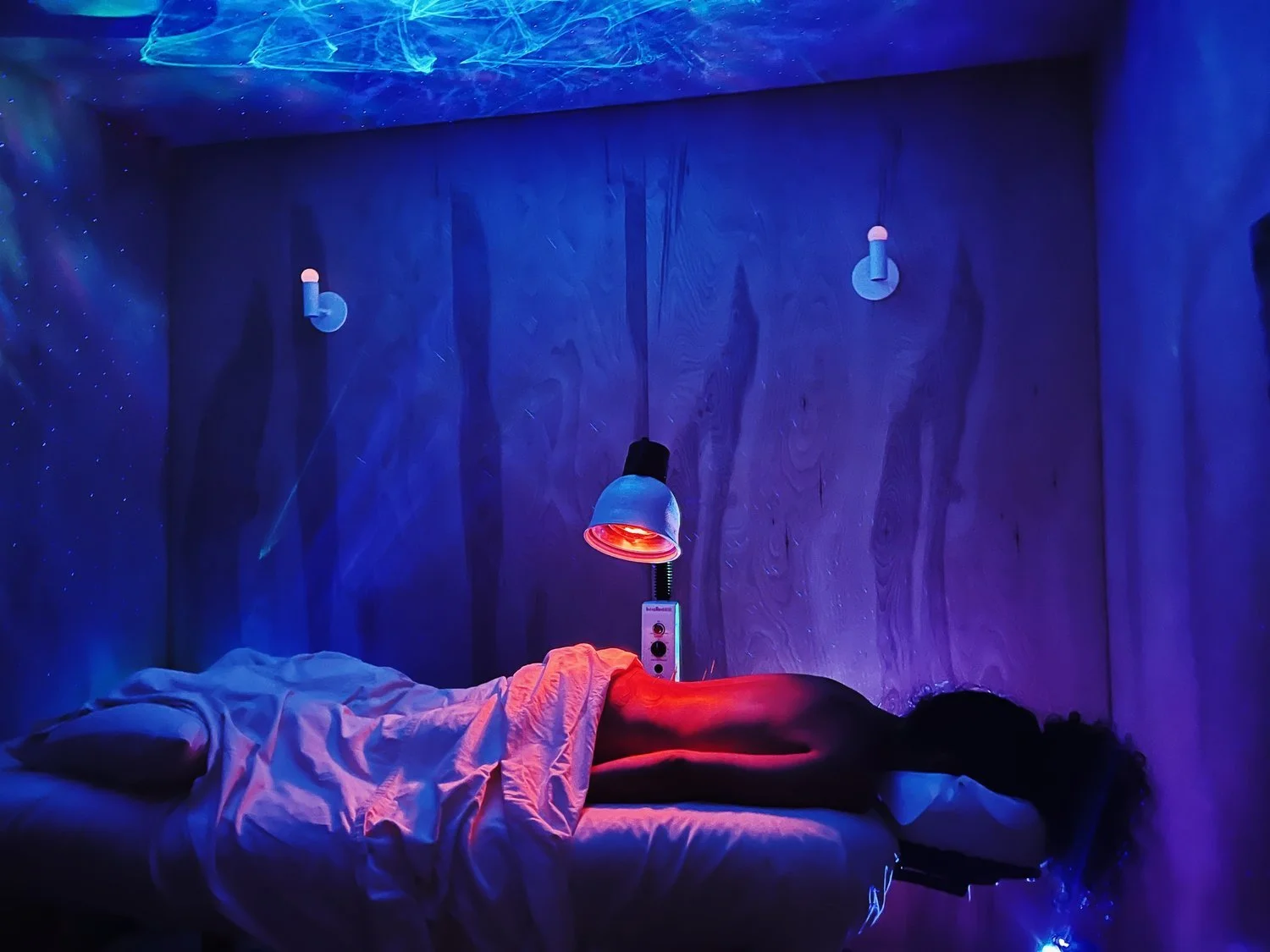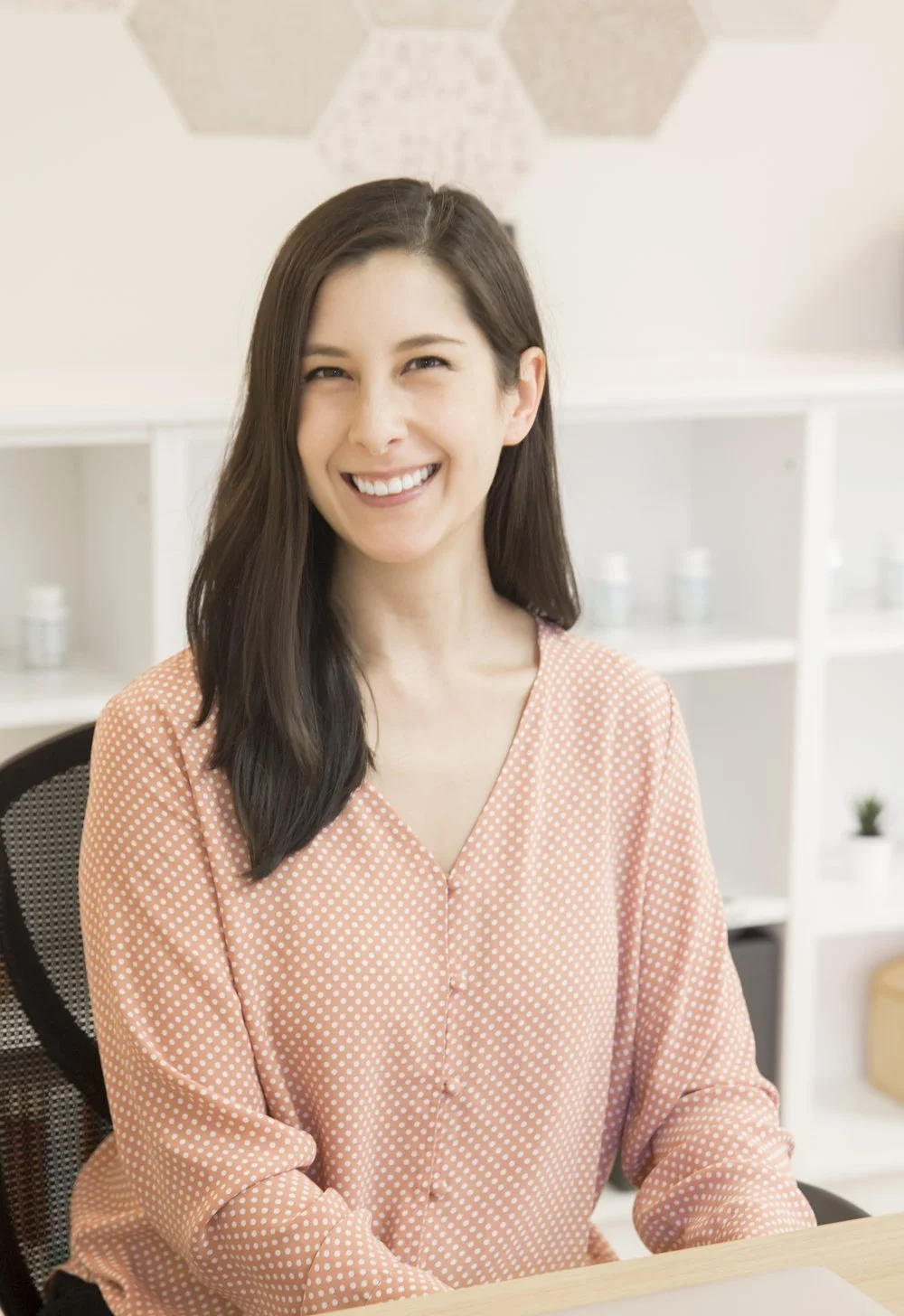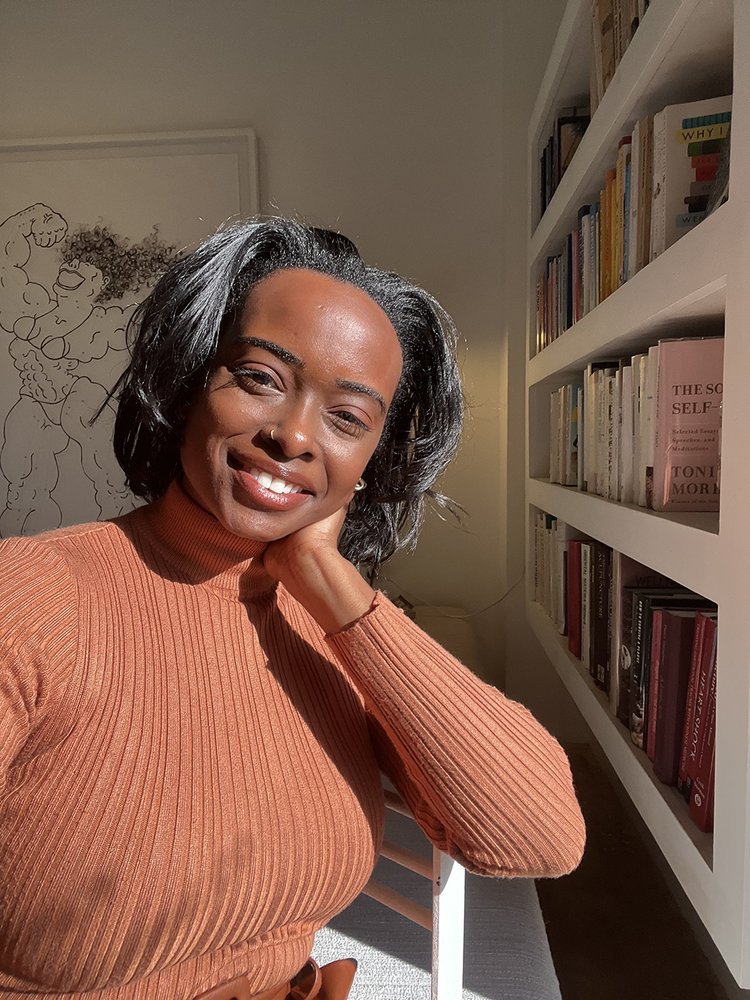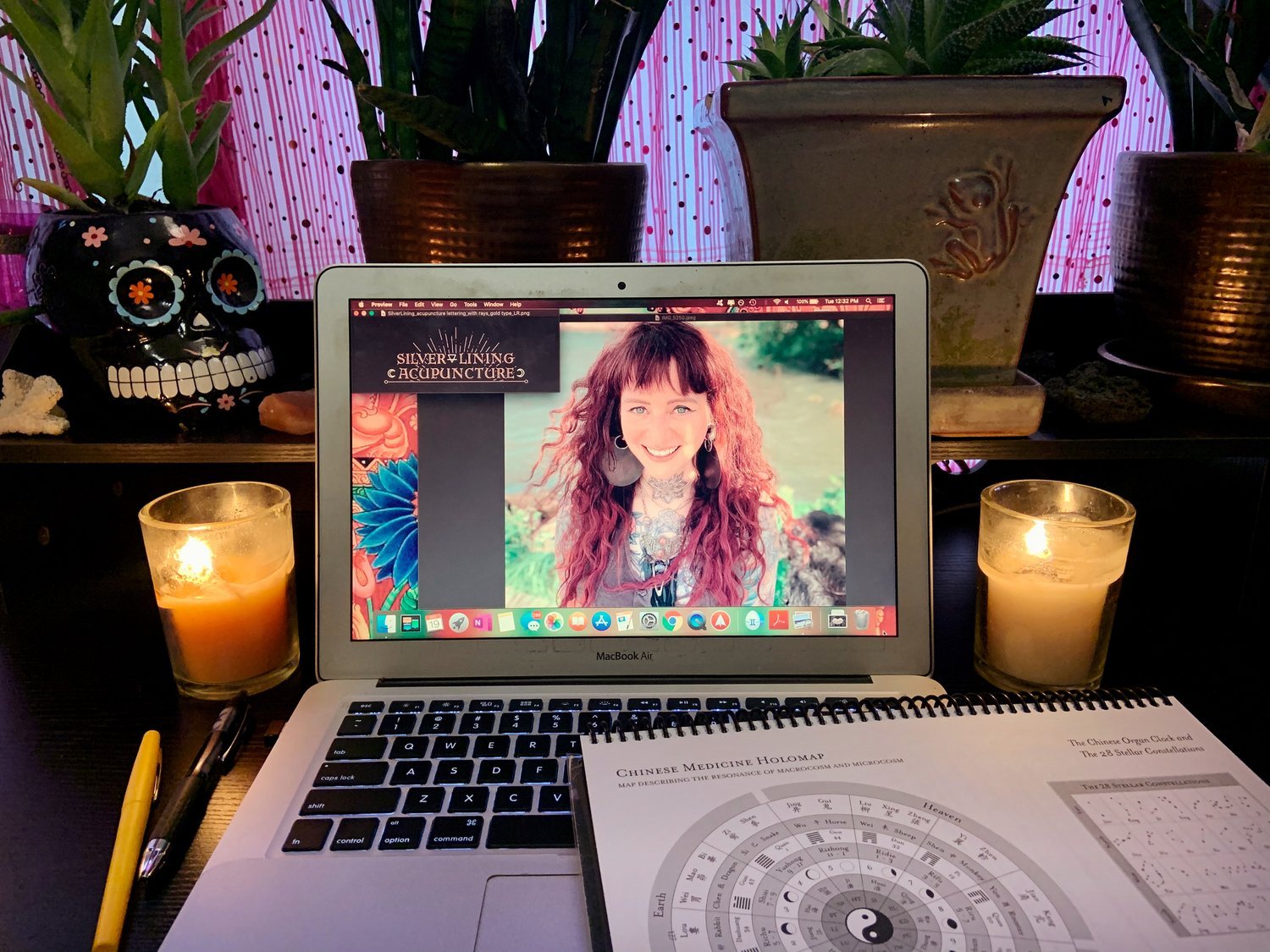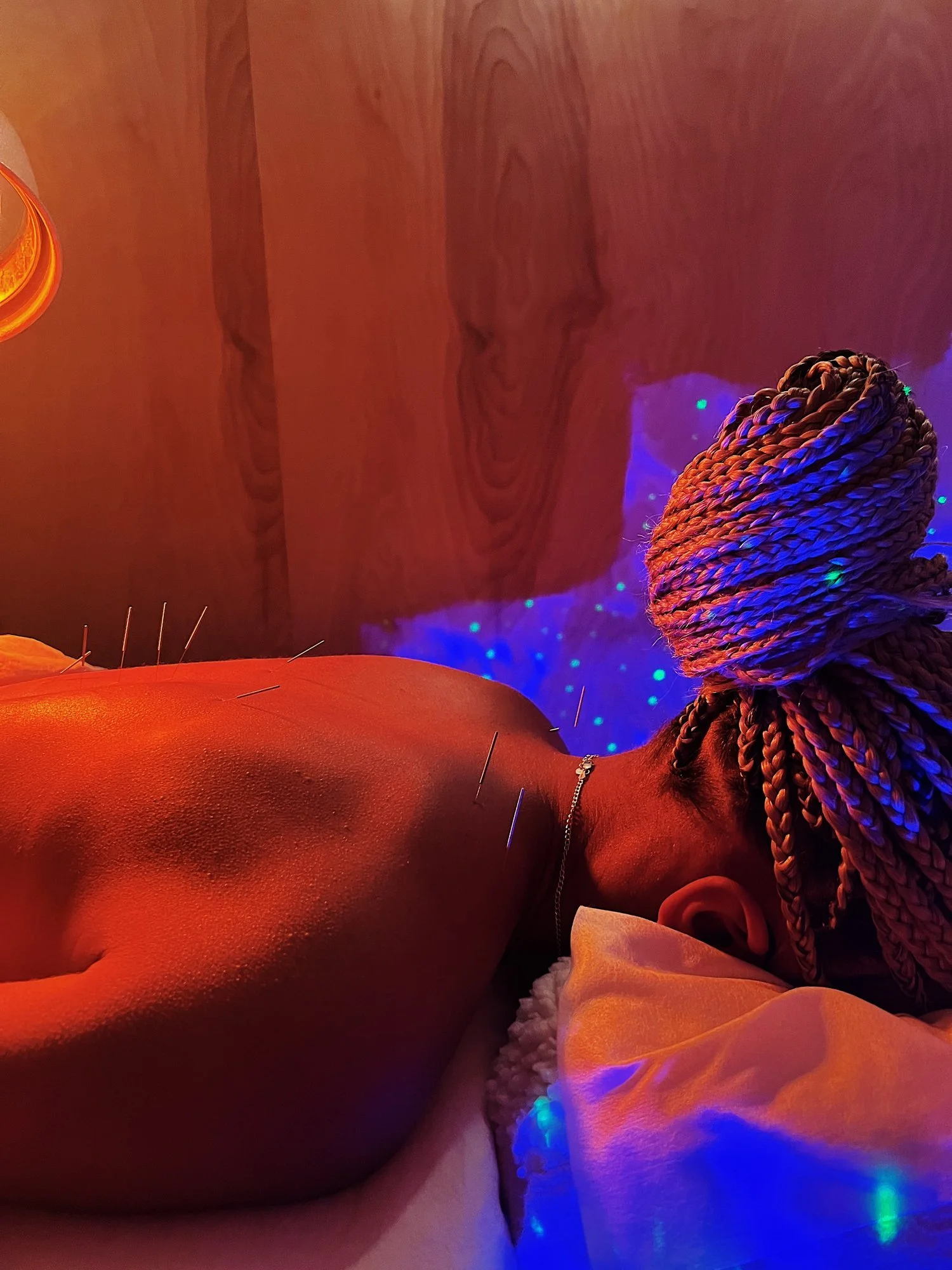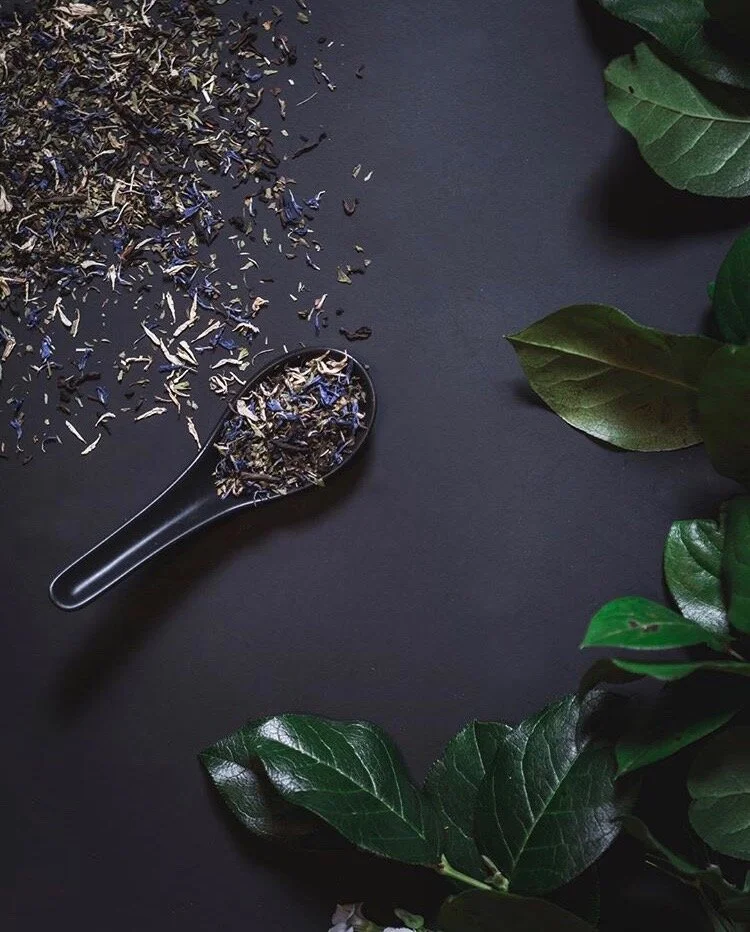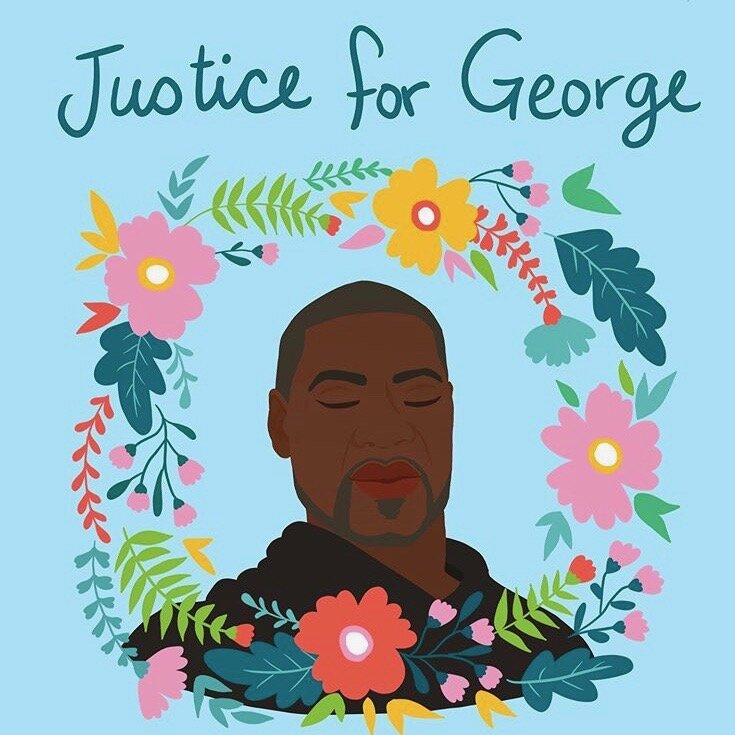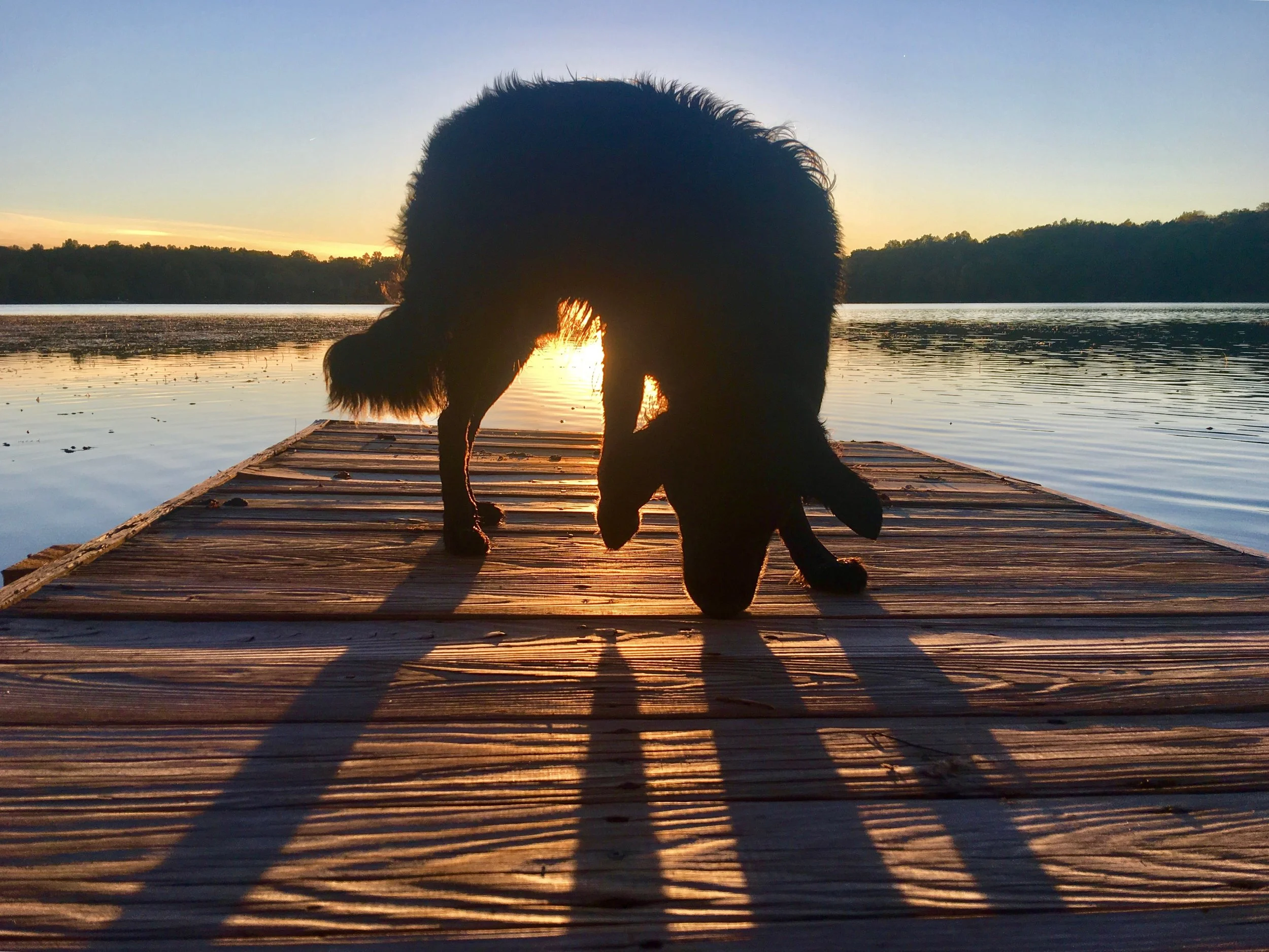10 Tips On Starting Your Own Acupuncture Private Practice
This post is for those who are graduating, recently graduated or looking to branch out on their own. Dr. Emily Siy, DACM, L.Ac reached out to some of her colleagues to gather some sound advice from people who are successfully doing it and who can offer some advice that you might not find in your standard practice management classes.
A Guide for New Acupuncturists and Students
Deeper Genius Acupuncture & Healing Arts, in Los Angeles, CA
In acupuncture school, most of us don’t get to spend much time learning much about starting a business. Not all of us going into this field plan to be entrepreneurs. Our training includes 3-4 years of learning the ins and outs of Chinese Medicine while also learning Western Medicine. When we graduate there are really only a few options we have for work. There are not always many jobs available for acupuncturists in the Western Medical system, despite our well-rounded training. The ones that exist can come with what can feel like, a lot of limitations. Though the field is growing and there are more acupuncture clinics, those of us that live in smaller cities or towns might not have this as an option for work. Many of the clinics that hire are also small businesses and might not pay as well as one might need after graduating with overwhelming school loans. These factors lead many of us to become entrepreneurs and solopreneurs.
This post is for those who are graduating, recently graduated or looking to branch out on their own. Dr. Emily reached out to a few of our colleagues, including myself, to gather some sound advice from people who are successfully doing it and who can offer some advice that you might not find in your standard practice management classes.
The Many Things To LOVE About Our Private Practices
Dr. Alli Urbanik Kimmel, DACM of Spreading Roots Acupuncture in Mount Kisco, NY
Dr. Alli Urbanik Kimmel first started working in a larger group practice, then transitioned to a smaller office with only one other acupuncturist before starting her own business. She ultimately felt her “earning potential was limited while working for someone else.” She prefers how being her own boss allows her to “make a living while also having a life outside of work through greater earning potential and the ability to set my own schedule.” Dr. Alli also adds that, “one of the best things about having a private practice is that I truly get to prioritize my patients and cultivate a healing relationship. I am able to make decisions around my pricing, session structure, and the number of patients that I see to ensure that my focus is completely on helping people to heal,“ Dr. Alli says. “I love that I am in charge of the vision for my practice, from the way that patients interact with the website to what they see and feel when they walk into my space.”
Dr. Alli also points out that, “in a larger practice setting, the focus can sometimes be on getting a large volume of patients in to increase revenue, but as a private practitioner, I've been able to decide that I prefer to work with a smaller number of patients on the issues that I particularly enjoy treating. Because I focus on specific areas that I excel in, I've built a good referral network from patients who enjoy working with me and have expanded my practice that way, rather than trying to be a jack of all trades.”
Portia R. Wilson, L.Ac., Founder of Deeper Genius Acupuncture & Healing Arts, in Los Angeles, CA
Portia Wilson wears all the hats in her practice over in Hollywood, CA. Portia explains that being her own boss really allows the connections she has with colleagues and patients to be truly authentic, which creates a better healing environment. ”My patients and colleagues are some of the most interesting people. We get to show up safely as ourselves in all of our weird, artsy, intellectual, paradigm shifting, queer glory.” Portia graduated acupuncture school knowing that, “I would pay myself better than someone else would,” and was ready to shed all the “arbitrary rules of conformity in many clinic settings [that] did not resonate with me. I couldn't wait to burn my white coats and dye my hair hot pink again, while still providing quality care that my patients love in a practice of my own design.”
Dr. Erica Robyn Burley, has practiced in two different states, running her own practice while also working in community clinics for many years. Starting in 2020, she invested all her experience into her full-time private practice in Portland, OR. Dr. Erica describes the way all her hard work and experience has paid off saying, "something magical happened over the past year where I stopped feeling like I’m hustling. My schedule fills up by itself. My income is consistent and stable.” When asked what she loves about her practice she says, “it is an extension of me. I created it. At times I didn’t even know where I was going or what my goals were, but I built it from the bottom up.” She lists perks, like being your own boss, bringing your dog to work, taking vacations when you want but more importantly “earning an income that doesn’t insult my worth and knowing I’ll never have to do that again.” A truly empowering part of being in charge of your own business.
Some Of The Challenges That Come With Private Practice
Katrin Dollano What’s Good Wellness, In Ontario, Canada
Katrina Dollano in Oakville, Ontario (Canada) worked first as an associate in another clinic which motivated her to become her own boss. She is the co-owner of What’s Good Wellness, which is run by a team of 11 people including other acupuncturists, a holistic nutritionist, front desk staff, a web and tech person, as well as an acupuncture assistant. This business model allows her to see patients in-person 2 days a week and virtually another 2 days a week. Katrina finds challenges in managing all the financial and business concerns while also being a clinician. Having supportive and trustworthy staff has been helpful but she also has to navigate managing people’s different personalities and learning styles as the owner.
Dr. Erica Robyn Burley, DSOM, L.Ac: Silver Lining Acupuncture in Portland, Oregon
Dr. Erica shares that “building my private practice truly felt like reinventing the wheel.” Like many of us, she shares, “I went to acupuncture school believing that studying holistic health and healing was in opposition to pursuing a career in advertising, marketing, accounting, banking, etc. It was an unpleasant surprise to graduate and realize I am now a business owner without any of the education or training I need to run a business.” A short list of the things she taught herself are: spreadsheets, accounting, website building and search engine optimization (SEO). Dr. Erica says, “The to-do list never ends, because you don’t know what you don’t know until you figure out you don’t know it.”
We all clearly feel its worth it in the end! So keep reading for some tips for those who are planning to power through the challenges to be your own boss!
10 Tips On Starting Your Own Private Practice
From Portia
1. Be true to your own voice as you decide who your patient base is and what your practice looks and feels like. Niche is great.
Deeper Genius Acupuncture & Healing Arts, in Los Angeles, CA
2. Don't underprice your services. Have a clear cancellation policy that respects everyone's time and your ability to build a sustainable practice.
3. Decide what kind of life you want for yourself and build your practice style and schedule around that.
From Dr. Erica
4. Define your boundaries and expectations and communicate them clearly with your patients. Revisit this often.
5. Practice trauma-informed care. Trust and consent are everything when you have another person’s nervous system in your hands.
From Dr. Alli:
6. Research practice management software. Streamlined and user friendly practice management software saves you many hours and headaches. I use Jane, the software honestly makes me feel like I have an assistant working for me because many tasks can be automated or simplified.
7. Be safe! When working alone, it could be good to leave your last appointment of the day for follow up appointments only. If you have online booking, set your shift settings so that only returning patients can book, or don't allow booking online for the last slot of the day. This gives you a chance to screen new patients and make sure that you are never alone in the office with someone you don't feel safe around.
From Katrina:
8. Hire a business coach, mentor and/or join a business mentoring group ASAP. If I could go back in time, I would have joined one while waiting to receive my license so I could learn how to create systems and set them up.
9. Stay in touch with friends from acupuncture school, make friends with colleagues via social media. I value the relationships I’ve formed with other folks who also practice TCM and have been able to lean on them for support and vice versa. It’s helpful to be able to bounce off clinical ideas and cases with others.
10. Do your own inner work. We have all experienced various degrees of trauma in our lives. We are not responsible for what happened to us, but I do believe we have a responsibility to care for our mental health. When one works on their inner issues, honors their wounds and challenges, and sees them as an opportunity for growth and evolution, then it has a ripple effect. It allows you, as a practitioner, to bring more compassion to your practice and the people you serve.
How To Get In Touch
Dr.. Emily Siy, DACM, L.Ac. New York, NY (Chinatown/Little Italy, Lenapehoking)
Dr. Alli Urbanik Kimmel, DACM, L.Ac. Mount Kisco, NY (Westchester County)
www.spreadingrootsacupuncture.com
Portia R. Wilson, L.Ac. Los Angeles, CA (Hollywood)
Dr. Erica Robyn Burley, DSOM, L.Ac Portland, OR
www.silverliningacupuncture.com
Katrina Dollano, RA Oakville, Ontario, Canada
Compiled and Organized by Dr. Emily Siy, DACM with the help of the contributors listed above, on July 26, 2022
FEATURED GUEST BLOG | Eradicating the O-Word
FACT: “Oriental” Is A Racist Word. Rugs are not racist, but you might be upholding a system that is. Join us in banning the word “oriental” for acupuncture and herbal medicine due to its racist implications on the people it is used to label and because of its harmful implications on our society. Sign the petition if you’re an acupuncturist, a patient, someone who hates racism and injustice.
FACT: “Oriental” Is A Racist Word
GUEST BLOG
I’m imploring everyone to join me in banning the word “oriental” due to its racist implications on the people it is used to label and because of its harmful implications on our society. “Orientalism” historically captures Western Europe’s views on the “East”, a giant expanse of the earth including the Middle East, North Africa and Asia. Use of this term allowed control of how the “East” was viewed by the West, and how people from the “East” were viewed and regarded. The narratives associated with this term continue to hold true today, continuing to label us as the “other” to what is mainstream. “Orientalism” describes us as exotic, feminized, sexualized and foreign. As we became exoticized, our culture, art, foods, medicine became productized for Western appetites and Western capitalism. As a result, our worth —when or whether we are trendy or valuable — slipped out of our hands and into the control of Western narratives. This makes being an acupuncturist of Asian descent ironically complicated and difficult.
Photo by Lida Sahafzadeh on Unsplash
Influential Point, a grassroots online platform committed to advancing health diversity, equity and inclusion in global healthcare, started a petition back in July to remove the word “oriental” from the professions of acupuncture and East Asian Medicine. When I asked Dr. Tamsin Lee, founder of Influential Point, how the petition came to be, she explained that “as an Asian American, I always felt uncomfortable with the o-word in the profession.” She even mentions it deterred her from pursing her career path initially. I can really relate because I hesitated in choosing my acupuncture school for the same reason. Dr. Lee did not let racism stop her. She says, “acupuncture and East Asian medicine changed my life. It allowed me to stand on my own two feet and walk again after being paralyzed, so despite the fact that this profession had a racist term, I decided to pursue it.” I don’t think mine and Dr. Lee’s feelings and experience are so isolated. Dr. Lee addresses this when she explains to me that, “throughout my education, I always wanted to connect with others that might have been feeling the same about the o-word. At the time, I didn’t have the language to describe what I was experiencing but now I know what I was experiencing was a daily violent attack.” She even accounts a conversation with a BIPOC patient who helped her come to the conclusion that, “words can empower or oppress us. This word oppresses people.”
I’ve seen a lot of positive support from my immediate community (because you are all amazing)! At the same time, some of my colleagues have received pushback, with comments ranging from “why is this a bad word?”, “Geez, are rugs racist now?” to “What do you expect schools and organizations to do? This will be expensive, difficult and time consuming to change”. Dr. Lee who has likely been dealing with the brunt of the negative comments makes a very important point that, “they use various excuses as a means to distract others from the fundamental purpose of this petition and that is to make this profession safe for students, practitioners and patients. It’s not safe right now because it’s defined by a xenophobic term that is rooted in a history of violence in the United States.”
What is perhaps even more disappointing about unsupportive reactions to the petition is that many members of my own community (people of East Asian descent), are not standing up against the racist o-word. It can be discouraging when you don’t feel support from who you consider to be your own people. Discussing this with Dr. Lee, she reminds me of how complicated our internal struggles are by saying, “one thing is the different lived experiences of Asians. Asian immigrants have a vastly different experience than 1st, 2nd, 3rd generation Asian Americans. As Asians, we’ve also been conditioned to believe in the model minority stereotype and we don’t learn our Asian American history in school. The power and privilege that some Asians have been given comes with a long list of conditions, and one of them is to stay silent. We’ve been conditioned to believe that if we speak up and use our power and privilege to fight for our basic moral and ethical values then we won’t have the opportunities that our parents or grandparents have worked so hard for us to have.”
Dr. Lee and IP have been met with a lot of positive support. Some have expressed discomfort with using the o-word but didn’t feel like it was their place to say anything because they’re not Asian. This made Dr. Lee realize that Asian acupuncturists, should do more to be in the forefront about this issue as the medicine comes from our cultures. Dr. Lee adds, “for some, I get the sense they have just been waiting for someone to actually bring this issue to light. IP has received emails and DMs from folx that have added brackets to their title to acknowledge their solidarity. One person actually threw out their degree in the trash!”
Photo by Toa Heftiba on Unsplash
When schools and organizations label East Asian Medicine (Chinese Medicine, Korean Medicine or Japanese Medicine), “oriental”, it makes it difficult for people to accept our medicine as something to be taken seriously; it becomes something to “other” and something “different” from what is accepted as “normal,” “mainstream,” or “standard care.” We are instead labeled “alternative”. There are real consequences to this attitude. Insurance companies are less likely to reimburse our services, making it difficult for patients to pay out-of-pocket for ongoing treatments. During a pandemic the media portrays herbal medicine as frivolous, when it could actually save lives. Recklessly using a label that is racist harms all of us: acupuncturists, herbalists, patients, people of Asian descent, people affected by other types of discrimination, those affected by medical racism, and all people of color. Some people seek East Asian Medicine because they feel they have not been treated with proper care in other healthcare settings. As acupuncturists, we must be aware of this, address any internal biases and do better for our patients. There are over 5,000 acupuncturists where I live in New York State, yet the petition to remove the o-word has only recently broke the 2,000 mark on signatures. Sign and share this petition.
Words Can Be Harmful. Racism Kills People.
I have recently been disappointed to see even some of my once-respected white male teachers react poorly and irresponsibly to POC acupuncturists’ concerns on cultural appropriation and micro-aggressions in our field. This is not just disappointing, it is alarming. Acupuncture school is such an unsafe place for Asian people. (I’m betting it is unsafe for other POC as well.) In my experience, well-meaning white teachers and inexperienced students sometimes tried to correct me on my own culture due to their own ignorance or lack of exposure. Some people will disagree with me. Others will say this is ironic or unacceptable but from my experience, it is strategic and widely accepted. It makes me think about how they might benefit from this attitude and the o-word. Despite President Obama’s signature on a bill to remove the word “oriental” from all federal laws in 2016, in a LA Times opinion piece, Dr. Jayne Tsuchiyama, Doctor of Acupuncture, irresponsibly wrote in 2016: “As an oriental, I am bemused. Apparently Asians are supposed to feel demeaned if someone refers to us as orientals.” Her words give any white supremacist ammo to continue oppressing us and others. This is because those who think it’s OK simply have not learned the history of the word and the history of Asian Americans in the US and/or do not have the capacity to think about the larger picture critically. While I’m briefly saddened for the ignorant, I am angered and frustrated daily by the impact of such recklessness. It is harmful to everyone when the o-word is used with the implications its connotation carries. Those inflicting them and those receiving them can act like micro-aggressions are no big deal, but the fact of the matter is that they play into the determination of real life experiences: whether someone gets a job offer, a raise or promotion, proper treatment in a healthcare environment, a fair mortgage rate, a traffic ticket, an arrest, accused of a crime they didn’t commit or much much worse. Being silent and complacent is harmful to everyone.
I’m Ashamed of Dr. Tsuchiyama’s Words
Photo by Annie Spratt on Unsplash
I’m ashamed because she is East Asian, like me, and an acupuncturist, like me. I am ashamed because East Asian American women often look “all the same” to many people and I don’t want anyone to see her and think of me. I’m angry because I have worked too hard every day of my life to fight these words and their impact, and she so self-righteously and irresponsibly has encouraged them to be printed in the LA Times and her words continue to be used as a reference to support racism in the field of East Asian medicine. I am embarrassed because she closes her opinion piece with comments about how acupuncturists have bigger problems like getting coverage from Medicare and Medicaid and how the influence of big pharma affects how people regard East Asian Medicine. What she fails to connect is that bias against East Asian people is also bias against our medicine. Allowing people to label us with the o-word also gives up our power and control to those with influence and power to decide whether our East Asian culture and our medicine is trendy, beautiful, exotic, based on science or valid and in the same breath, and exploit our medicine to serve their motives while erasing our heritage and ancestry. How often is East Asian Medicine portrayed as mystical, exotic and magical so that people can think it is not scientific? Not only does this affect us as Asian people, but it allows many people who fall into the trap of the model minority, Orientalism, to become pawns against other people of color. This is why I feel Asian communities need to wake up to what is being done to us in this country and stop accepting the use of the o-word. During my doctoral studies, we often discuss how our profession is not given adequate recognition, leading to our inability to get reimbursement, but no one points to the bias against our medicine due to its roots in China or East Asia. The United States has had a history of robbing East Asians of dignity and power: the Chinese Exclusion Act (1882), Japanese Internment camps (1942-1945), and the model minority myth during WWII to use us against other people of color. The biases and stereotypes behind these systems oppressing East Asians still exist today. There have been over 2000 anti-Asian American hate crimes reported so far amidst the pandemic where #45 has openly declared the novel coronavirus as “Kung flu” or “The China Virus”. It’s pretty safe to assume that the numbers are underreported. There was an 89-year old woman who was set on fire in Brooklyn and the NYPD did not consider it a hate crime. The anti-Asian sentiments of the past are still very much living in our country and in its people today. Unfortunately, these sentiments on top of all the other racist and patriarchal ideologies are held by those with disproportionate financial, political, and social power. I hope that by today, Dr. Tsuchiyama has a different perspective from what was published in 2016. Consider this a call in.
Rugs Are Not Racist, But You Might Be Upholding A System That Is
Photo by Eric Prouzet on Unsplash
When I graduated from the Pacific College of Oriental Medicine, I had just finished 4 years in a Master’s program studying every second of my waking life and could not bear to hang the diploma up because it contained the o-word twice. Once in the name of the school and a second time in the degree. While Pacific College officially changed their school name January 1, 2020 to Pacific College of Health Sciences they announced that the name change was because the school’s offerings have expanded outside of East Asian medicine. There was no mention about the use of the o-word. The degree I hold is titled “Master’s of Science in Oriental Medicine”. This still needs to be addressed. This move by the school feels more like erasure than it does responsibility, support or solidarity. I studied tirelessly to pass all four of the national board exams (NCCAOM) and I don’t display that certification proudly because it contains the o-word.
During a recent NCCAOM (National Certification Commission For Acupuncture and Oriental Medicine) and ASA (American Society of Acupuncturists) town hall meeting that was meant to address diversity, equity and inclusion (DEI) in our field, a speaker asserted that it is racist to call a person “oriental” because the word is used to describe objects like rugs and art. DEAD ASS WRONG. Let me be clear: the rug is not racist, but using the word “oriental” to describe it is racist. It felt like a dagger in me during a talk that was supposed to be about DEI. It is possible that this was NCCAOM’s way of justifying the fact that they use the o-word in the name of their organization. It is possible that NCCAOM and ASA know about the petition (they definitely know about it) and would rather not respond respectfully with a name change because there are people in their organization would find it “time-consuming” and/or “expensive,” and trying to get Medicare and Medicaid coverage is far more important to them. What NCCAOM and ASA are missing is that these are one and the same issue. I’ll say it again! Garnering mainstream appreciation for Eastern Medicine is a means for it to be reimbursed. I am left to wonder whether it is possible that NCCAOM and ASA benefits from being able to decide how East Asian people are viewed in the field of acupuncture and Chinese Medicine. Curiously, during this same town hall meeting there was an announcement about the annual contest they would hold for Acupuncture Medicine Day which was previously called Acupuncture and “Oriental” Medicine (AOM) Day. Strategic? NCCAOM and ASA have yet to make a public statement about it, but they as organizations, do not seem to support the petition. Dr. Lee contacted the ASA months before starting the petition to ask if there was anyone doing any work to remove the o-word. Her emails were met with silence all three times despite being a speaker at a town hall meeting in the past. To give them the benefit of the doubt, maybe there are internal struggles within the organization. However, while they work out whether we are rugs or people, I just don’t feel it’s fair or responsible for them to have discussions on DEI. The sudden push for DEI feels like a performative response to the recent resurgence of the Black Lives Matter movement when you consider all the racism within our field that has gone on unaddressed. Dr. Lee adds, “Furthermore, they never and still haven’t sent an email about the increase in anti-Asian violence that has been occurring since January 2020. I find this difficult to understand because we study, practice and profit off of Chinese and other East Asian cultures, and yet there’s been no dialogue about supporting these communities.” This generally shows a lack of support for the Asian community and the protection of Orientalism. It is upsetting and some would call it total f*ckery that I feel obligated to give this organization money because I want to stay nationally board certified, yet be burned by the word on my certification while trying to practice the medicine of my ancestors in order to inform me about why I am who I am in a country that upholds white supremacy. It is difficult to not feel certain ways about this. There is privilege in academia and I acknowledge the privilege in my choices, but it is still total f*ckery and I struggle with it personally.
Image by PublicDomainPictures from Pixabay
CSOMA (California State Oriental Medical Association) and ABORM (American Board of Oriental Reproductive Medicine) are making moves to take the word out of their organization names. Though it may be costly and time-consuming, some organizations seem to believe it is all worth it in order to take action in our field against systemic racism and uphold our medicine to a higher standard.
How Do You Benefit?
To those who still have a problem with what I’m saying and don’t have a problem with the o-word, instead of letting me know you disagree and that you should have the right to use racist words to describe rugs, objects and medicine (sorry, I really don’t care to hear it!), I ask you to truly contemplate it. What do you gain from the word “oriental”? Does it make your life easier to not be required to talk about it or attend meetings about removing it from your organization or school’s name? How do you benefit from the use of the word? Does it help you to feel more valid when you pursue East Asian Medicine, take classes in Martial Arts, buy art, learn a new language, open a wellness center? Does it give you more control over how Asian people are viewed in the field of East Asian Medicine? How does it benefit you? What are you protecting? Racism does not work in mysterious ways. The ideology of racism is strategic and systemic, and is built around keeping certain people down. I write this all to say that Orientalism is piece of a larger history that is systemic racism and white supremacy. Racism targeted against any certain group hurts all of us. To those that feel uncomfortable about the spotlight that has been cast on racism, revealing the ugliness of its layers, I say, “good.” It means that you don’t feel good about what’s going on and that is a natural response to clear injustices in our society. Feeling uncomfortable means you need explore it. Allow that discomfort to be the beginning of why you choose to change. Sign the petition. —here’s that link again!
Image by Vedran Brnjetic from Pixabay
A Matter Of Respect
Some might read my words and feel I am being disrespectful. Redefine what that means after you’ve been called a racist word, pay good hard earned money for a graduate degree with racist words on your diploma and pay good hard earned money to have a board certification with racist words on your documents. I fully recognize that it was my choice and my privilege to go to a certain school to keep a national board certification but this is also what was available to me in a field that I am ancestrally connected to in a country that upholds white supremacy. Here is the thing, people make mistakes, but they should be acknowledged and corrected in order to stop harming others in a field where we are taught, do no harm. Now I ask, which is more disrespectful? When something is obviously harmful and continues to be upheld OR when someone who has been disrespected calls “f*ckery” on those who uphold harmful and racist notions?
Organizations, Schools and people who are still using the o-word, stop harming us!
Sign the petition if you’re an acupuncturist, a patient, someone who hates racism and injustice.
Disclaimers: This is not a call out to Pacific College, ASA, NCCAOM or Dr. Tsuchiyama —It is a call in. History speaks for itself. We have so much work to do. Let’s start talking about it.
Thank you Dr. Tamsin Lee for providing your opinions and your continued work to protect the Asian community and the professions of Acupuncture and East Asian Medicine. Please follow the work of Influential Point on Instagram.
Written By Emily Grace Siy, L.Ac.
September 13, 2020
Lung Support for Smoky Times
When the Lungs are dry, their energy does not descend to the other organs for lubrication. Instead, Lung energy goes into reverse flow, and we can experience symptoms like cough, shortness of breath, sore throat, hoarse voice, dry mouth and nose, fatigue, and even skin issues like acne. Here are some easy DIY tips for ways to support your Lungs and respiratory system during such hazardous conditions.
Our beautiful city of Portland has been covered in a blanket of thick smoke for the past few days now. As the smoke and ash from the wildfires in Clackamas county blow into Multnomah county, our air quality index continues to increase to even more dangerous levels for our Lungs and respiratory system.
Photograph by Chip Osborne (@chip_osborne_photography)
In Chinese medicine, the Lungs are the commander of Qi. This means that they are in change of circulating energy around your body. They govern the airways in the throat and they also connect to the Heart below, setting the rhythmic pulses of the body through their timekeeping function of inhalation and exhalation. The Lungs are called the Delicate Organ because they are extremely susceptible to damage by environmental influences such as allergens, pollution, viruses, bacteria, and climate.
As the organ in the body that sits on top, the Lungs are like a cloud canopy that mist down and lubricate all the other organs. The delicate nature of the Lungs is most sensitive to fire, wind, and dryness. When the Lungs are dry, their energy does not descend to the other organs for lubrication. Instead, Lung energy goes into reverse flow, and we can experience symptoms like cough, shortness of breath, sore throat, hoarse voice, dry mouth and nose, fatigue, and even skin issues like acne.
Here are some easy DIY tips for ways to support your Lungs and respiratory system during such hazardous conditions.
AROMATHERAPY SUPPORT
Use essential oils to open the sinuses and clear the airways. Eucalyptus, Pine, Cedar, Rosemary, Peppermint are excellent for steams or topical applications. Use 1 drop in a bowl of freshly boiled water, place a towel over your head and the bowl, and inhale the steam for 5-15 minutes. You can also dilute oils into a carrier oil like Jojoba oil to make a topical application that can be applied to your skin. Use a spray bottle to spray onto your chest and throat as needed, or massage the diluted oil directly into these areas.
AIR PURIFICATION
If you are not lucky enough to have a HEPA filter running at home, herbal steams are fantastic for purifying the air in your home. Boil a handful of any or all of fresh herbs like Rosemary, Sage, Thyme, Lavender on the stove in a large pot of water. You can also add 15 drops of Cedar essential oil or Eucalyptus essential oil. Once boiling, turn to low and simmer throughout the day to purify the air and replace the smoke smell with lovely, soothing herbal deliciousness.. Be sure to keep enough water in the pot to avoid burning the herbs.
NUTRITIONAL SUPPORT
Foods that moisten and support the Lungs and its partner, the Spleen, are apples, pears, garlic, ginger, carrots, sweet potato, daikon radish, and green tea. This Asian pear recipe is great for quenching thirst and addressing chronic Lung issues, warding off seasonal colds and flus, preventing allergies, and moistening the mouth, nose, throat, and Lungs.
1 Asian Pear (or any variety of pear), peeled and chopped into bite-size pieces.
1 slice fresh Ginger
1 Cinnamon stick or 1/2 tsp. ground Cinnamon
4-6 Cardamom pods or 1/4 tsp. ground Cardamon
4-6 Cloves
1 Tbsp. local raw Honey
1 Lemon wedge
Add all ingredients to a pot with enough water to cover. Bring to a boil, then cover and simmer until pears are soft. (Asian pears require 15-20 mins, other varieties 8-10 mins). Remove herbs once cooked and enjoy! Mash into a pear sauce, drink the juice, or use as a base for your regular breakfast porridge by adding oats, chia seeds, granola, quinoa, etc.
MULLEIN TEA
My favorite Skin Whisperer, Doctor Ellerie ND LAc (@doctor.ellerie), recommends drinking Mullein tea to bring moisture to dry places. Mullein is the fuzzy weed we see growing everywhere on the West coast and is easy to buy from any herb or tea shop. It is used for relieving symptoms of cough, bronchitis, hoarseness, pneumonia, colds, chills, flu, swine flu, allergies, tonsillitis, and sore throat. Dr. Ellerie advises drinking Mullein tea with honey and lemon to hydrate and bring moisture back to all the places your body needs it most.
Nutrition Therapy That’s Inclusive: Body Mind & Belly
Diet culture can be damaging but understanding and building a healthy relationship with food can be life-changing! Carol’s nutrition practice is not just person-centered. It is a safe and welcoming space that comes with the understanding that relationships with food can be complex and all bodies deserve access to nutrition education that is healing for them.
Body, Mind & Belly takes a radical self-love approach to food, lifestyle and healing.
Photo by Brit Alamillo
Diet culture can be damaging but understanding and building a healthy relationship with food can be life-changing! Carol’s nutrition practice is not just person-centered. It is a safe and welcoming space that comes with the understanding that relationships with food can be complex and all bodies deserve access to nutrition education that is healing for them.
Carol says, “Eating is SO much more than simply consuming food. During each moment of our lives, our brain, nervous system and body are communicating. Deciding what to eat, how to prepare it, when to eat it and understanding how it affects us inside and out takes some effort and is not as simple as it seems. We already contain all that we need to feel centered, strong and self-compassionate in all that we do, including in our relationship with food.”
Why Should You Work With Carol?
Photo by Brit Alamillo
Personalized nutrition therapy with Carol can “help you discover the root causes of your concerns from a holistic viewpoint.” She says, “We then collaborate on an accessible and sustainable plan, taking steps toward goals that you are ready, willing and able to make. I am here for those wanting to heal their relationship to food or use shifts in nutrition and lifestyle patterns to manage and support specific medical conditions. Some conditions I often work with are chronic stress and inflammation, anxiety and depression, diabetes type I & II, high blood pressure, gut health issues, nutritional deficiencies like iron deficiency anemia and high cholesterol.”
Understanding that people come from different backgrounds and cultures, Carol points out that, “one of the main pillars of my approach is inclusivity, because the environment in which we do this work really matters. LGBTQIA2S+, POC and veterans often experience barriers to receiving respectful, culturally sensitive and appropriate care in typical healthcare settings. The interplay and health of your environment, your body, microbiome, mind and spirit are unique to you, and you deserve care that reflects that. I will never just hand you a stack of paper with nutrition information about your medical conditions and tell you to get to work, because we all know that that isn’t how we find positive and lasting change."
When Asked About Chinese Medicine, Carol Says…
Photo by Brit Alamillo
“I love that acupuncture is relatively non-invasive, yet it can it can help DRASTICALLY in such a minimal amount of time. There have been times when I’ve walked into an appointment with a stiff pain in my neck, not able to turn my head more than a few degrees to either side and have walked out 30 or so minutes later feeling at least 75% less pain. I also respect and appreciate the holistic system of Chinese medicine which considers all parts, including nutrition, herb and lifestyle approaches. I can go see an acupuncturist about something physical, energetic, mental (or all!) and be treated for such a wide variety of concerns, and perhaps gain an understanding in some way of how they may all be connected. This concept is not one we are often exposed to in the US and I hope that Chinese Medicine, along with systems like Ayurveda, yoga and even holistic nutrition can continue to broaden our perspectives of health and healthcare.“I love how relaxed I feel after an acupuncture appointment and how much of a difference it makes physically and energetically. I've gone to acupuncture for anxiety relief and relaxation, but also for physical strains and pains. I'm amazed that I can walk into the appointment with a stiff neck and barely able to turn my head, and in less than an hour feel SO much more mobile and free! Acupuncture works!” Carol currently receives acupuncture at Silver Lining Acupuncture in Portland, Oregon.
Get In Touch With Carol
Photo by Brit Alamillo
Carol is a nutritionist and owner of Body Mind & Belly. She holds a Master’s of Science in Nutrition from the National University of Natural Medicine, a Bachelor’s in Fine Arts from Parson’s School of Design and has over 800 hours of advanced yoga and meditation teacher training. This fall she will be pursuing a certificate in Food in Culture and Social Justice from Oregon State University, so that she can put her nutrition skills to use as an advocate for food justice and food policy reform.
Pronouns: She/Her/They
Written By Emily Grace Siy, L.Ac. and Carol Tessitore
Aug 1, 2020
Black Lives Matter
Attunement is a commitment to showing up. Eyes open. We are being asked to see, to hear, to respond. We are being invited to attune to the collective anger and grief that is bubbling over today.
We are being asked to identify deeply and fully with something every single human heart can relate to and understand— murder is horrific, systemic violence is traumatic, being treated as less than is unjust and unfair.
I’m struck by the extreme juxtapositions of content in my Instagram feed today.
Heavy hearts expressing grief and fear and outrage over the murder of another unarmed black man at the hands of police.
People selling things, babies doing things, people lamenting about how brutal and unfair it is to #stayhome and eat food and watch TV.
Calls to dismantle the systemic racism that allows this to happen again and again.
Ecstatic white people smiling in selfies to demonstrate how this particular day is overflowing with #gratitude
Interspersed with demands for justice and the arrest of the people who did this, the system that continues to do this.
My belief is that the most profound tool in healing is attunement. There is something alchemical that comes out of the experience of truly being seen, heard, and met. The nervous system relaxes, the heart opens, the soul remembers itself, and transformation becomes possible.
What I’m seeing on my feed is a whole lot of lack of attunement. Tons of unacknowledged pain and suffering. People avoiding discomfort. Other people grieving, raging, and scared.
Attunement is a commitment to showing up. Eyes open. We are being asked to see, to hear, to respond. We are being invited to attune to the collective anger and grief that is bubbling over today.
We are being asked to identify deeply and fully with something every single human heart can relate to and understand— murder is horrific, systemic violence is traumatic, being treated as less than is unjust and unfair.
How are we going to heal and transform as a community, as a nation, as a culture, if we can’t even attune to each other’s most primal collective needs for safety, support, and solidarity?
Look at this shit. Yes it’s uncomfortable. Yes it’s hard. Yes it takes courage. Be brave. How many more?
Text FLOYD to 55156 to sign the petition ❤️
“How Many More” artwork @bychenelle 🙏🏼
#georgefloyd #ahmaudarbery #breonataylor #blacklivesmatter #attunement #stopkillingblackpeople
#stoppolicebrutality #humanrightscampaign #blackrightsarehumanrights
I Ain't Afraid of No Ghost!
In everyday life, we experience so many things that hold us back from freedom, joy, and unity. In real life, a “ghost” is a wandering spirit that is fixated on a past memory or a longing for a desired outcome in the imagined future. This ghost is the part of us that is unable to live within the present moment and haunts us through its unwillingness to let go.
The impact of ghosts on physical, emotional, and psycho-spiritual well being source back thousands of years ago to the shamanistic roots of Chinese medicine. From the shamanistic perspective, disease can be caused by one of three things. Wind refers to external factors that we cannot control, such as weather patterns and environmental conditions. Qi refers to internal factors that we can control, such as thought patterns and emotional conditioning. The third category, Gui refers to ghosts, which in modern scientific parlance is called parasitism— a non-mutual relationship between species, where one species— the parasite— benefits at the expense of the other— the host. Ghost possession translates to sharing your body with anything that derives power and life force from your body, leaving you drained, sick, weak, or not feeling like yourself.
In everyday life, we experience so many things that hold us back from freedom, joy, and unity. A “ghost” is a wandering spirit that is fixated on a past memory or a longing for a desired outcome in the imagined future. This ghost is the part of us that is unable to live within the present moment and haunts us through its unwillingness to let go. Ghost possession is a psycho-spiritual state that obscures the authentic self. It is the state of losing touch with ourselves when our beings are temporarily ruled inhabited by visiting pain-bodies manifesting as addiction, obsession, doubt, anxiety, worry, rage, or fear.
In Chinese Medicine, we always approach the body, mind, and spirit as inseparable, integral parts of a whole being. In the physical realm, parasites are a broad category of invasive creatures that take the form of insects, worms, viruses, bacteria, spirochetes, and “bad” gut flora. In the psycho-emotional realm, parasites can be seen as a formless version of invasive creatures, such as repetitive thoughts, conditioned emotional reactions, habituated behaviors, pain-bodies, and distorted belief structures. Whether these parasites have physical form or are formless, they all prey upon their host, draining their life force and stifling their potential as a mechanism to make themselves stronger, bigger, and more powerful.
Tonight is the night to honor Samhain— to welcome in the harvest and usher in the dark half of the year. As the barriers between the material world and the spirit world become more permeable, it is the best night of the year to acknowledge the ghosts around you and within you, see what is possessing you, and set yourself free from all the things that haunt you. The underlying philosophy of shamanistic medicine is intentionality— the practice of directing consciousness into psycho-spiritual development through the use of intuition and plant medicines. Rituals are an integral part of the medicine itself, as healing relates to performing an invocation designed to illuminate consciousness. Channel your inner shaman and send your ghosts off in a compassionate farewell ritual— burn incense, light a candle, take an epsom salt bath with lots of essential oils and settle down with your true self for a nice, warm affirming cup of tea. Happy Halloween!!
Happy Pride!
This year, and every year, we give thanks to those brave patrons of the Stonewall Inn for allowing the next generation (and the next) to stand in the sun and to be proud, vibrant, and full of light.
A special guest blog by good friend and colleague Christopher Peacock, DACM, MS
Clinic Director of Yinova Brooklyn Heights, Acupuncturist & Herbalist
I’m not sure if there is a correlation between the arrival of the summer solstice and gay pride month. I would like to think that the timing, in fact, was actually meant to fall roughly on the anniversary of the famous Stonewall riots which sparked the gay rights movement. Just one week after the summer solstice on June 28th 1969, fifty years ago on this very day, a group of LGBTQ people (many of whom were transgender people of color) gathered at the Stonewall Inn. At that time it was illegal for LGBTQ people to congregate and be served alcohol, so as often happened – the police raided the bar. On this night, however, the patrons fought and resisted the raid and the gay rights movement was born.
Of course the tension had been brewing. People were upset about the funeral of Judy Garland which happened earlier that day. People were also fearful of being outed and arrested. In my heart, I’d also like to believe the summer solstice played a role.
Late June is the time in which the sun shines longer than any other time, the brightest of the bright or, according to Asian philosophy, the most yang of all yang. And so it’s significant that it was in June that the yearning to shine brightly and the impetus to stand proud reached its peak. It was time, at last, to revel in the brightness; to stand and be counted in the daylight culture.
This year, and every year, we give thanks to those brave patrons of the Stonewall Inn for allowing the next generation (and the next) to stand in the sun and to be proud, vibrant, and full of light.
Silver Lining Acupuncture stands with the LGBTQ community. We see you and we support you.
Wishing you peace, light, and pride.
Happy Earth Dog!
We are now entering Year of the Earth Dog, 2018. The Earth element is about friendship, family connections, belonging, feeling grounded in community, and cultivating and sharing food and any other sources of nourishment- physical, emotional, or spiritual.
Happy New Year! The year of the Earth Dog brings loyalty, kindness, generosity, trustworthiness, and steadfast work. Please see below for Individual Animal Forecasts for 2018 provided by Lillian Pearl Bridges of the Lotus Institute.
In Chinese cosmology, Dog is the animal that is paired with the organ network system of the Pericardium, sometimes called the Heart Protector. As a Fire organ in Chinese medicine, the PC is in charge of love, romance, sexuality, and finding joy through connection. Like the anatomical pericardium, which envelops the Heart, the PC acts as the inner gates to the Emperor’s throne room, deciding who shall be let in and who shall be kept out. The PC forms a protective wall around the Emperor’s inner circle, and swiftly lifts the drawbridge to deny entry to anyone who presents a perceived threat.
Dog is the animal whose Heart Spirit co-exists with the Heart Spirit of its human companion. Dog is the grounded, animalistic, Earthen counterpart to the ethereal Fiery nature of the human Spirit, which is housed in the human Heart. In Unity with humankind, Dog serves as an externalized PC, protecting the Heart with fierceness, unwavering loyalty and unbreakable faithfulness. Dog embodies the traits of human nature that emerge through the conscious choice to live in service to the Heart and move towards Unity. Dog teaches us loyalty, kindness, generosity, trustworthiness and a sense of responsibility for steadfast work. As such, Dog is a harbinger of love and friendship, defined by unwavering attunement with and fierce protection of those that share it’s Heart.
We are now entering Year of the Earth Dog, 2018. The Earth element is about friendship, family connections, belonging, feeling grounded in community, and cultivating and sharing food and any other sources of nourishment- physical, emotional, or spiritual. Dog teaches us empathy, unconditional love, compassion, and a strong desire to be in service to others. The Year of the Earth Dog holds deep potential for grassroots movements, collective consciousness, outreach, egalitarianism, and special care for self, others, and the Earth itself, as the Earth element illuminates the sacred bonds we share with the ultimate Source of life-sustaining food and nourishment.
Individual Animal Forecasts for 2017
by Lillian Pearl Bridges of the Lotus Institute
Rat - Water Element: 1924, 1936, 1948, 1960, 1972, 1984, 1996, 2008, 2020: Rats are feeling more creative, business is generally good and there is a chance to be very social. However, watch out for arguments with family members.
Ox* – Earth Element: 1925, 1937, 1949, 1961, 1973, 1985, 1997, 2009 and 2021: This is not an easy year due to the many obstacles that arise - most are not serious. Business plateaus, but it is a good year for love relationships
Tiger – Wood Element: 1926, 1938, 1950, 1962, 1974, 1986, 1998, 2010, 2022: This is a very good year overall – There is luck, especially in business and Tigers will feel optimistic and act more gregarious. They will be very busy in a good way.
Rabbit – Wood Element: 1927, 1939, 1951, 1963, 1975, 1987, 1999, 2011, 2023: Progress will finally be made in business, although the results will not be immediate. This is a very good year for romance and marriage. Home life will be much happier and life will start feeling more fun.
Dragon*–Earth Element: 1928, 1940, 1952, 1964, 1976, 1988, 2000, 2012, 2024: This is the opposite sign of the Dog so Dragons need to be cautious with money and health. Home life may be difficult. However, business is good and Dragons should travel and meet new people or they may start feeling bored.
Snake – Fire Element: 1929, 1941, 1953, 1965, 1977, 1989, 2001, 2013, 2025: This is a mixed year for Snakes. Business will seem very slow and Snakes are advised to work steadily and harder. Snakes will feel more introverted. However, family life will be enjoyable.
Horse – Fire Element: 1930, 1942, 1954, 1966, 1978, 1990, 2002, 2014, 2026: This is potentially an exciting and action packed year for Horses. Business will be much more profitable and Horses will enjoy the company of friends and family more than usual. They may move or big changes are possible in the home.
Sheep*–Earth Element: 1919, 1931, 1943, 1955, 1967, 1979, 1991, 2003, 2015: This is not a peaceful year as Sheep may find that they are thrust into many confrontations they don’t want to be involved in. There is also increased competition. However, they will find solace in friends and a very happy home life.
Monkey-Metal Element: 1920, 1932, 1944, 1956, 1968, 1980, 1992, 2004, 2016: This is a year of ups and downs for Monkeys, but there will also be times of sudden luck. Monkeys will be feeling more assertive and will find success in implementing some of their unusual ideas that previously were not appreciated.
Rooster–Metal Element: 1921, 1933, 1945, 1957, 1969, 1981,1993, 2005, 2017: This will be a lot of challenges for Roosters this year, but business will be good and more money can be made but they shouldn’t take any unnecessary risks. It is important that Roosters hold their tongues and keep from fighting.
Dog* – Earth Element: 1922, 1934, 1946, 1958, 1970, 1982, 1994, 2006, 2018: This is a mixed year. It is good for moving, remodeling or redecorating. Dogs will be feeling very social but they will not accomplish as much as they want, but they will make good connections and business deals for the future. If it’s your 60th birthday year, it’s a restart and there will be luck for these Dogs.
Pig – Water Element: 1923, 1935, 1947, 1959, 1971, 1983, 1995, 2007, 2019: This is a good year for planning for the future – saving money and getting healthy. Overall, this year will feel slow and even boring, but Pigs need to prepare for the events of their own year coming up. Family life will be enjoyable.
*Dragons, Oxes, Sheep and Dogs should carry a Rabbit charm for protection this year and to bring more luck their way.
A special thank you to Peter Fischer for his contribution to the forecast based on his knowledge of Bazi.
DISCLAIMER: All information provided in this forecast is based on the ancient principles of the Chinese Five Element Theory and on an understanding of the animal symbolism in Chinese Astrology. It is intended for entertainment purposes only. There is no express or implied guarantee of results from using this information, and individual users are solely responsible for their own interpretation or application to their own circumstances. Further, the information is not, nor is it intended to be, a substitute for legal, medical, or psychological advice, evaluation and/or treatment. You are welcome to share this post, but please refer to the source.
Copyright: Lillian Bridges, Lotus Institute 2018
Get Your Kale On
In Chinese Medicine, nutrient dense vegetables are vital to aid in building blood which is a crucial part of our circulatory, reproductive and cognitive systems. We need rich blood, one of the yin components in our body, to cool excess heat which can get out of control and cause everything from rapid digestion, to skin inflammation, to cancer cell development.
It's Kale Day, kale lovers! Yep, its a thing, and my business partner Autumn Bear, MS, L.Ac is all about breaking down what is so freaking great about kale. Enjoy!
Kale is a crop that has risen to fame and glory over the past few years. It has risen to prime popularity here in the US and is now regaled in every juice shop from New York to San Fancisco. There is much to appreciate about this mighty fine leafy green but there are some precautions that should be taken too. It is no doubt a super food, but is it super for you?
Kale, Botanically, belongs to the “cabbage” (Brassica) family. Other common vegetables in this family are broccoli, cauliflower, brussels sprouts, etc. Due to it's richness in nutrients, it has a host of medicinal benefits and is an amazing food for the protection from vitamin-A deficiency, osteoporosis, iron-deficiency anemia, and believed to protect from cardiovascular diseases and colon and prostate cancers (for further details see http://www.nutrition-and-you.com/kale.html)
In Chinese Medicine, nutrient dense vegetables are vital to aid in building blood which is a crucial part of our circulatory, reproductive and cognitive systems. We need rich blood, one of the yin components in our body, to cool excess heat which can get out of control and cause everything from rapid digestion, to skin inflammation, to cancer cell development. Blood is also where we store our emotions and our history so ample blood in the body will keep our emotions even and metered. If we become blood deficient we are more likely to show outward expressions of emotions such as anger, anxiety, fear etc. If we don't have enough blood to house the emotions, they have nowhere to go and then they have to go outward!
There is an important factor in any food appreciation, however, in that not every great food is great for every person. Kale is in the family of goitrogenic foods which are foods that adversely effect our thyroid health. Kale is a thyroid inhibiting food, so people who suffer from any kinds of thyroid issues should consume it cautiously. It is also important to point out that cooking kale can mitigate some of these negative effects that Kale may play on the thyroid, therefore juicing kale is going to be much tougher on a person's system then just having as a sautéed side dish. It is not to say that all goitrogenic foods ( Broccoli, Cauliflower, Kale, Brusssels Sprouts, Mustard greens, Radishes, Spinach, Strawberries, Peaches, Soy-based foods and Peanuts) will cause adverse side effects on a healthy functioning thyroid but rather these foods can cause the thyroid to be dysfunctional in people who already suffer from thyroid issues, especially hypothyroid conditions.
The way goitrogens work are that they inhibit iodine metabolism. Iodine is an important mineral utilized in the formation of the thyroid hormone. If iodine cannot be utilized properly by the thyroid gland then the formation of the thyroid hormone won't take place essentially causing they thyroid to become sluggish and unresponsive to the thyroid stimulating hormone produced by the pituitary. The person will start to suffer from feelings of being cold, extreme fatigue, sluggishness and the immune system will be more challenged and less effective in fighting off viruses and colds.
Chinese medicine evolves very much around health for the individual and looking at all the circumstances in a person's life to determine what is or is not healthy for that person. Kale may be a super food but for some people it could cause them to have chronic fatigue and have an underutilized thyroid. As a person who is looking to improve their health, kale should be rotated into the diet but take note that just like all other things it should be eaten in moderation. There is no need to consume mass amounts of kale to reap the benefits of this fine leafy beauty. Enjoy kale, eat it in a variety of ways and make sure to keep variety as part of a healthy diet. Health benefits come from keeping a varied diet, changing things up a bit on a regular basis and making sure there is a balance of cooked to raw as well as a balance of meat to fish and vegetables. We want to balance our fat and proteins and moderate the sweet flavor to keep our organs functioning at their best.
Let's celebrate Kale Day and enjoy its wonderful benefits! We welcome it into our veggie family and we appreciate all the great things it does for our body!
Here's to our health!
Staying Healthy This Autumn
Autumn is in full swing with cold damp weather & longer darker nights. The days feel shorter and the dark weather can affect your mood. As we move into Fall, you may notice it affecting your health.
Autumn is in full swing with cold damp weather & longer darker nights. The days feel shorter and the dark weather can affect your mood. As we move into Fall, you may notice it affecting your health.
Seasonal Attunement
The shorter days mean less daylight and sunshine which can make some people fatigued and depressed as their bodies adapt to the changes. The cooler damp weather can aggravate certain conditions like arthritis, fibromyalgia, eczema & asthma. (1) Acupuncture can help you to stabilize your mood and prevent other symptoms from flaring up. Consider (2) full spectrum light therapy or (3) vitamin D supplements to counteract the diminishing sunlight. Don’t let the weather get you down, pay attention to what you need at this time of year and (4) set up a warm and cozy space to hibernate, or book an appointment with us to bask under the heat lamp!
Eat Right For the Season
The Fall harvest provides us with ample amounts of squash, pumpkins, and root vegetables to bring us autumn warmth. This time of year calls for soups, stews, and warming seasonal spices such as cloves, ginger, cinnamon and nutmeg.
Cold/Flu Season
This time of year lots of people are getting sick with colds and the flu. Acupuncture can help boost your immune system to keep you healthy and reduce symptoms if you do come down with something. Some people find that hot tea brewed with ginger, garlic, honey, and lemon juice can help to fight off sickness. Chinese herbs can help, if you're interested in knowing more, just ask.
Drink Tea!
Under the Weather, one of my favorite blends by the holistic tea company I co-run, is a spicy anti-bacterial and anti-viral organic herbal tea designed to ward off cold and flu symptoms with a kick that open the sinuses, clear congestion, and promote sweating to flush out toxins.
Wishing you all a happy and healthy fall season.
